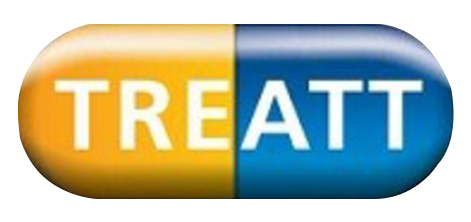Around 616 patients
across UK and Australia are currently participating in TREATT
What is TREATT?
Phase III Double blind, randomised controlled trial evaluating the safety and efficacy of tranexamic acid in patients with haematological malignancies with severe thrombocytopenia.This study will test to see if TXA is an effective treatment for bleeding in patients with haematological conditions.
TREATT Finishes recruitment!
After many years of hard work and persistence, we have reached our participant recruitment target. Thank you to all our health professionals and participants for contributing to this important study.
The Team
This project is an international collaboration between NHS Blood and Transplant (NHSBT) in the UK and the Transfusion Research Unit (TRU) from Monash University and involves researchers collaborating from a number of hospitals in both the UK and Australia.

Background
Patients with blood cancers often develop severe thrombocytopenia either as a result of the disease or its treatment, including chemotherapy and stem cell transplantation. Platelet transfusions are commonly given, in this situation, to raise the low platelet count and reduce the risk of clinical bleeding (prophylaxis) or stop active bleeding (therapy). There is evidence to say the most common reason for a platelet transfusion to thrombocytopenic patients with blood cancers is prophylaxis (up to 69%).
Recent studies have raised questions about the effectiveness of platelet transfusions to reduce clinical bleeding, and many patients experience bleeding despite use of prophylactic platelets. In addition to this, platelet transfusions are not without risks. Adverse events may range from mild reactions, such as fever to more serious and even life threatening events. Patients may also become refractory to platelet transfusions, the incidence of which increases with the number of platelet transfusions a patient receives. Once refractory, the ability to treat bleeding with platelet transfusions becomes more difficult requiring expensive, specially matched platelet transfusions that are difficult to source. Platelet transfusions are a limited and expensive resource, and demand for these components is rising in many countries, raising concerns about future shortages in the supply of platelets.
Any treatment that could reduce reliance on platelet transfusion support would have major cost-saving implications. Tranexamic acid is an antifibrinolytic drug that has been widely used in surgery to reduce clinical bleeding and need for transfusion, but few studies have evaluated use of this drug in patients with haematological malignancies.



